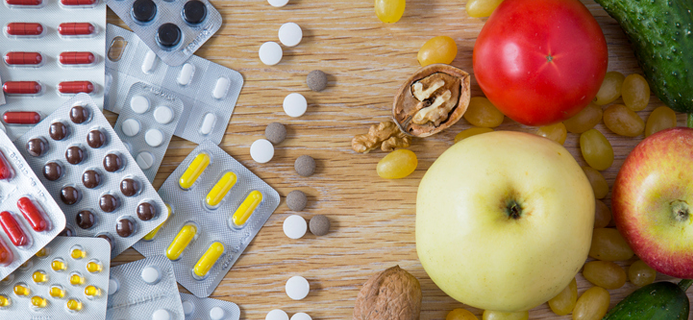Does vegetarianism lack vitamins and minerals?
Vegan and plant-based diets have become a trend for many people these days, but be aware of vitamin and nutrient deficiencies.
1. Why does a vegetarian diet have a risk of vitamin and mineral deficiencies?
A plant-based vegetarian diet emphasizes getting nutrients from fruits, vegetables, grains, and nuts as the main food source. Vegetarians do not eat animal meat, poultry, fish, or animal by-products. Studies show that a vegetarian diet brings many health benefits, while reducing the risk of obesity, high blood pressure, diabetes, etc.
A vegetarian diet can be a healthy diet, especially when it is well balanced to meet the body's nutritional needs. However, the exclusion of certain food groups can cause deficiencies in some nutrients, vitamins and minerals. Therefore, if adopting a vegetarian diet, especially a vegan diet, it is important to be aware of these deficiencies and consider supplementation to maintain long-term health.
If you have any concerns about your diet, consult a nutritionist for specific advice.

2. Some important vitamins and nutrients that vegetarians should pay attention to
- Iron: Iron plays a major role in the production of red blood cells, especially in the formation of hemoglobin, which helps transport oxygen from the lungs to other parts of the body.
Iron comes in two forms: heme iron (found in animal foods such as meat, poultry, and fish) and non-heme iron (found in plant foods such as beans, legumes, and dark green leafy vegetables). For vegetarians, the lower iron content in plant foods puts them at higher risk of iron deficiency.
- Vitamin D: Vitamin D supports cardiovascular and immune functions, as well as bone, muscle, and brain health. Vitamin D deficiency can lead to serious health consequences. Although this deficiency is not typical in vegetarian diets, vegetarians should be careful to supplement.
- Calcium: Calcium plays an important role in many body processes, including regulating heart rhythm, muscle tone, nerve impulse transmission, and building strong bones and teeth. Over time, calcium deficiency can lead to low bone mineral density, increasing the risk of osteoporosis and fractures. But many vegetarians and vegans have difficulty meeting their calcium needs and are at higher risk of calcium deficiency than non-vegetarians.
- Zinc: Zinc contributes to important body processes such as building the immune system, fighting imbalances caused by stress. However, vegetarian or plant-based diets often contain more foods rich in phytates (cereals, nuts, sesame seeds, soybeans), which inhibit zinc absorption, so vegetarians need to pay attention to supplementation.
- Choline: Needed to help regulate mood, memory, and muscle control, choline is an essential nutrient found in many foods. However, plant foods, such as beans and tofu, are often much lower in choline than animal foods.
- Vitamin B12: Plant-based foods do not contain vitamin B12, so vegetarians are often deficient. Recent studies show that 21–41% of vegetarians have low B12 levels. Vitamin B12 helps make deoxyribonucleic acid (DNA) and keeps the body's blood and nerve cells healthy. People with vitamin B12 deficiency are at risk of vitamin B12 deficiency anemia.


.jpg)

.jpg)

.jpeg)

